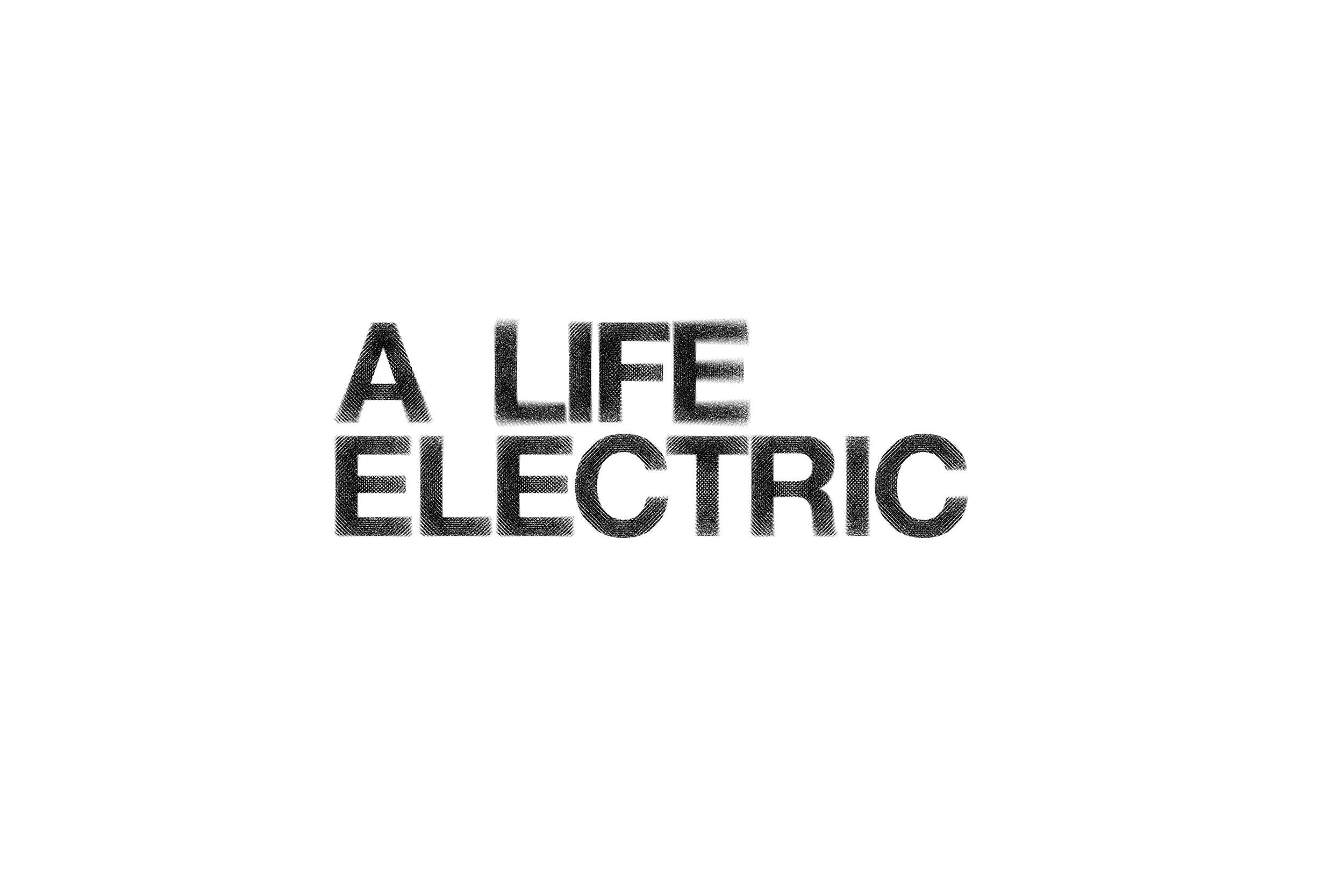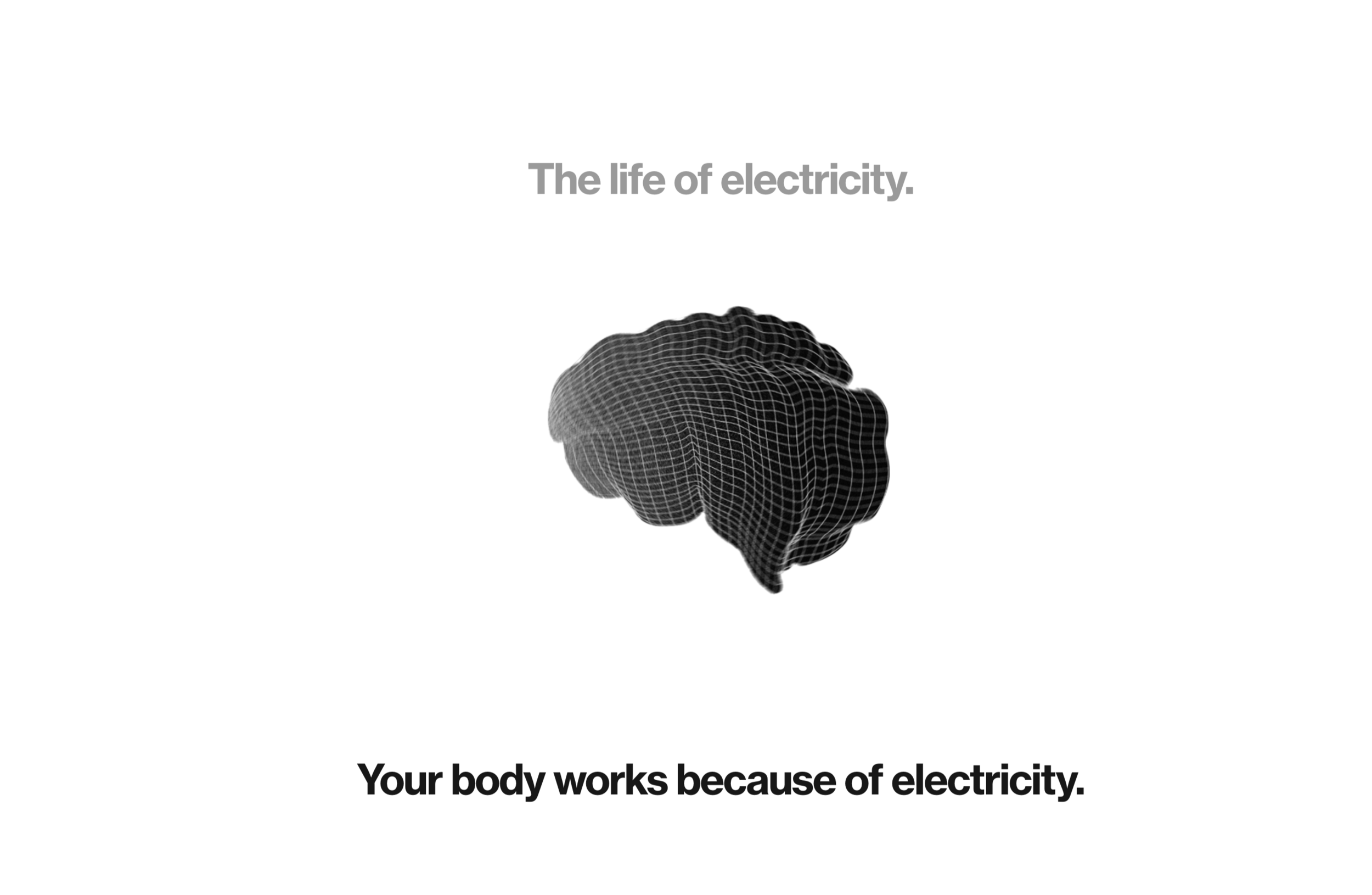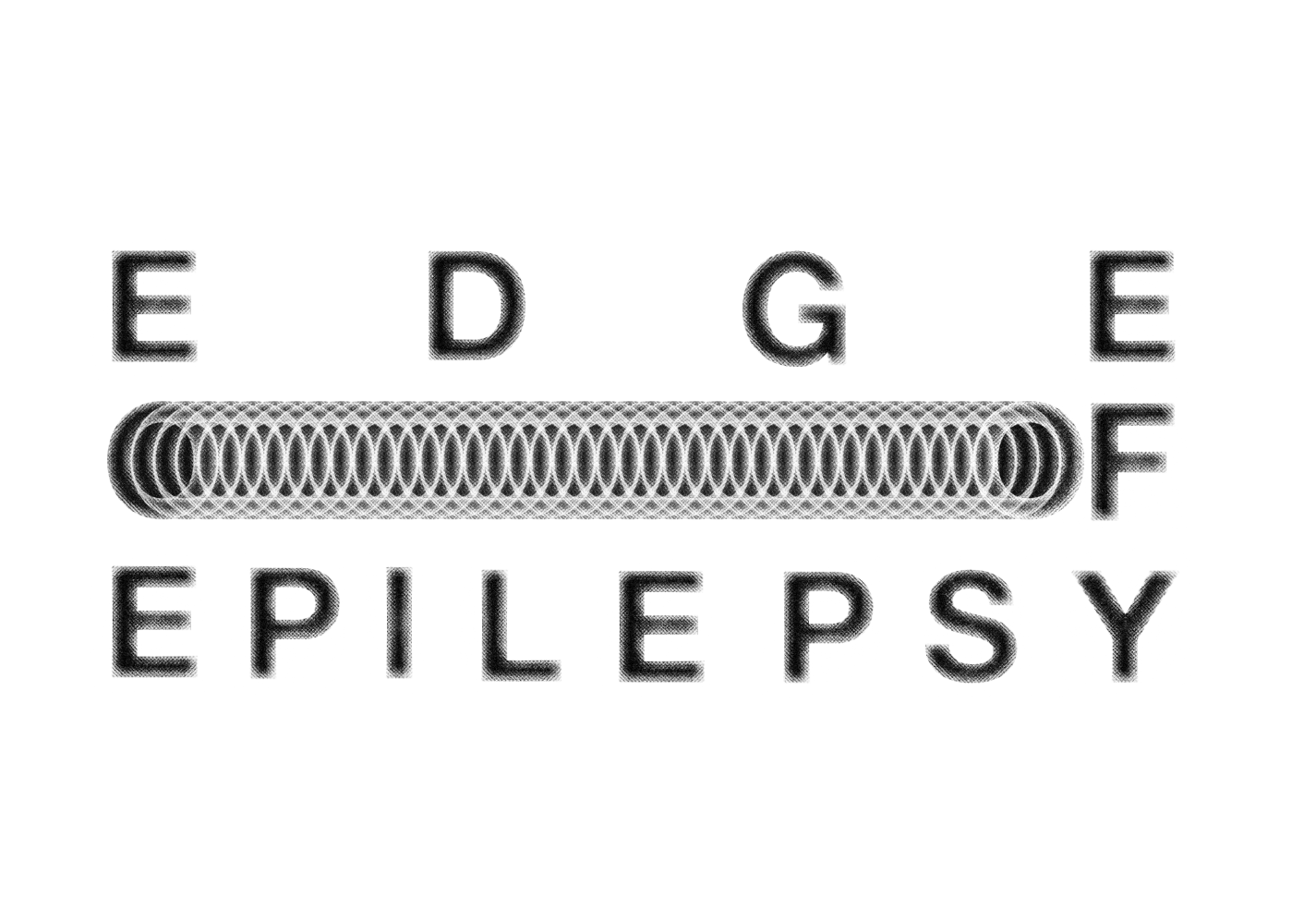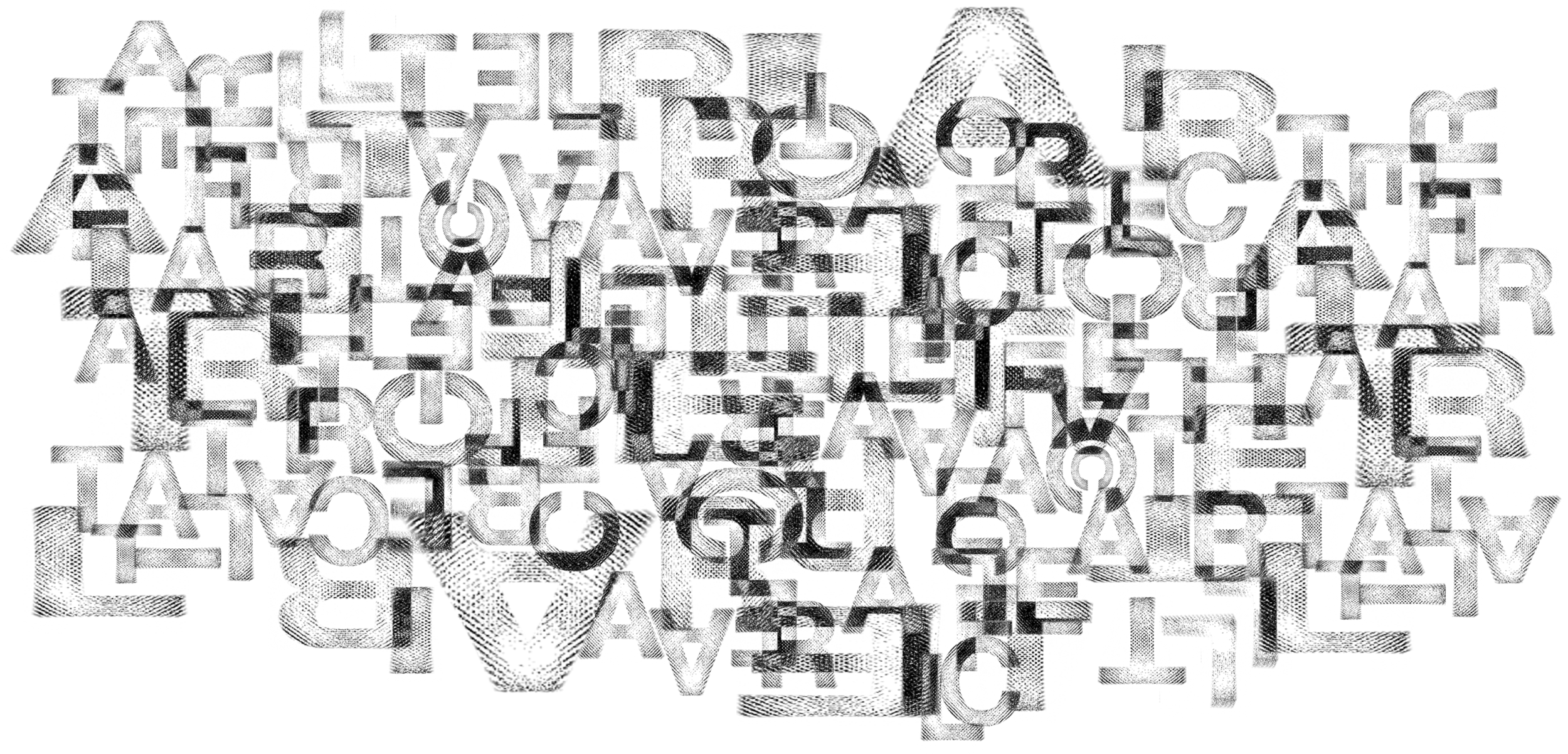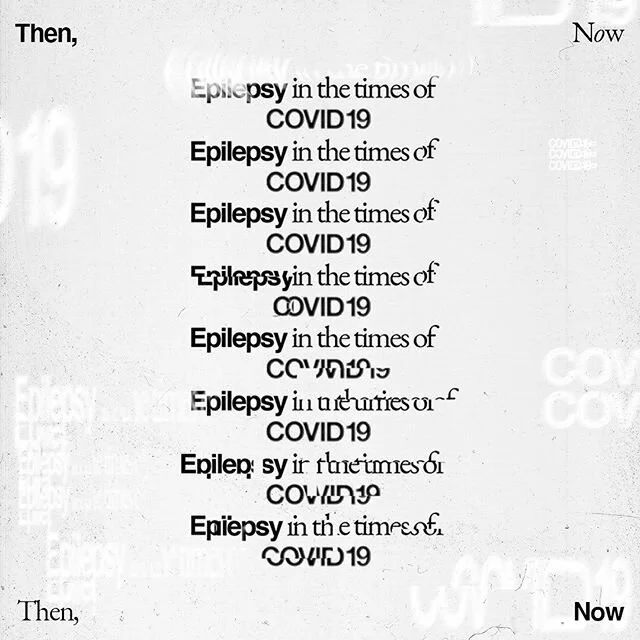A LIFE ELECTRIC IS A MULTIMEDIA DOCUMENTARY EXPLORING EPILEPSY EXPERIENCES GLOBALLY WITH THE GOAL OF BRINGING HUMANKIND’S MOST MISUNDERSTOOD BRAIN CONDITION OUT OF THE SHADOWS THROUGH ART AND EDUCATION.
PROJECT DETAILS
The project draws upon a hybrid of multimedia techniques to connect people, communities and society to the “lives of epilepsy”.
We enter epilepsy through doorways of personal experiences via interviews, letters, free-writing, biographical filmmaking, documentary techniques, abstract photography, typographical design, sound design, audio storytelling, digital media, print books, magazines and exhibitions to create a multimedia project accessible to all.
The A Life Electric project is personal for writer-director Fraser Morton, which started in his notebook, inspired by the life of his older brother, Blair. Since beginning the project in 2018, Fraser has held close to 100 interviews in person and over the phone. Along with his partner Eszter Papp, the pair have also collected a series of portraits, which will be displayed in photo exhibitions. The A Life Electric feature film is in development and book also coming soon in 2021. Please write to Fraser about book enquiries here: fraser@farfeatures.com
Book release 2024
Photo Exhibitions 2024
Feature Film in development
Creator/Writer/Director: Fraser Morton
Photographer/Producer: Eszter Papp
Editor: Sadiq Mansor
Designer: Ali Kelly
Mentor/Writing Editor: Jade Richardson
IT: Mike Cashin
Additional Reporting: Risyiana Muthia, Rob Bain
Produced by: Far Features Ltd
Feature Film
Produced by Storm Features Ltd
Producers/Directors: Fraser Morton & Michaela Storm Moir
Feature Film Enquiries: hello@stormfeatures.com
Media Coverage
Radia Network, Scotsman Article
, IBE Article, Napier Article, Lean In Podcast
ENTER OUR
A LIFE ELECTRIC
EXPERIMENTAL MAGAZINE
Our free online magazine A Life Electric.org, a written and visual exploration of epilepsy experiences.
FOLLOW
PROJECT NEWS
SHATTERING SILENCE THROUGH ACTION
Pushing past the headlines of the pandemic is no easy task at this stage of 2020 — especially for already maligned health conditions.
Epilepsy, and the sometimes-tragic result of Sudden Unexpected Death in Epilepsy (SUDEP), needs charities like SUDEP Action UK to continue their essential work and for their message to reach wider audiences and the general public.
Pushing past the headlines of the pandemic is no easy task at this stage of 2020 — especially for already maligned health conditions.
Epilepsy, and the sometimes-tragic result of Sudden Unexpected Death in Epilepsy (SUDEP), needs charities like SUDEP Action UK to continue their essential work and for their message to reach wider audiences and the general public.
The pandemic is diverting healthcare attention and budgets, but we cannot let the bad news of COVID-19 drown out the voices of communities who are already underrepresented in society.
During the pandemic, I have continued to interview families and healthcare professionals in the epilepsy communities in different parts of the world, and have heard a range of issues, from access to medication and in-person check-ups, scans, results, while also hearing of cancelled community events and mental health issues due to isolating effects of the pandemic.
While the world has gone to work online, so has the epilepsy community and the vital support networks, services and charities. This has had cascading effects.
I know that SUDEP Action — despite their continued commitment — has faced challenges, too, and have been affected by furlough and working from home constraints.
I have been awed by their resolve and unflinching commitment to campaigning and supporting the epilepsy community and families recently bereaved by SUDEP.
The new-normal socially-distanced work environment is why online campaigns such as #SpeakUp2SaveLives is so crucial to continue to show communities — who are spending exorbitant amounts of time online — that amid the noise of the pandemic, the epilepsy community is still represented.
SUDEP Action and the wider epilepsy community needs their message to continue to be heard by governments at local, national and international levels so that the thousands of families affected by SUDEP each year are represented.
At a grassroots level, SUDEP Action engages policy-makers and puts pressure on those in power to develop educational and healthcare preventatives to mitigate SUDEP occurring.
A LIFE ELECTRIC GOES LIVE ACROSS EUROPE ON RADIA NETWORK
A Life Electric is now live on 40 radio stations today throughout Europe. The online component of our ongoing epilepsy documentary has been turned into a 30-minute radio feature and broadcast via the Radia.fm network across Europe.
A Life Electric is now live on 40 radio stations today throughout Europe.
The online component of our ongoing epilepsy documentary has been turned into a 30-minute radio feature and broadcast via the Radia.fm network across Europe.
This is big news for our project and purpose: To get unheard epilepsy stories out into the public sphere, told in new ways, via new platforms, and out to the largest audience possible.
The Radia network’s motto is “new and forgotten ways of making radio” and produces long-form features by audio producers internationally who highlight underreported societal and environmental issues.
We are glad Radia has recognised epilepsy as one of these issues that needs more air time.
Audio producer Luca Piparo produced the episode — CONTROL — using voice actors, ambient audio, and distorted sound samples.
“Control is a sonic journey through stories of people living with epilepsy,” Luca said, “The composition was created in collaboration with the multimedia project A Life Electric, from which stories were chosen and re-interpreted.
The composition is an artistic exploration of the world that surrounds epilepsy, a world often made up of silence, indifference and fears, but also of pure energy, inexplicable phenomena, and still today enveloped in charm and mystery.”
Dedicated to all those people who don’t have a voice. Luca has personal experience with epilepsy and has explored his own condition through this process, like many people we have interviewed over the process of creating the A Life Electric project.
Produced by Luca Piparo
Texts and arrangements by Fraser Morton, Luca Piparo Music by Domenico Scjaino, Luca Piparo
Voices by Damara, Fraser, Sandra, Shameek, Steffi, Suki, Veronika, Zelah
Copyrights CC-BY-NC @ Luca Piparo
In collaboration with Far Features Ltd
A Life Electric is a multimedia documentary project exploring epilepsy experiences globally with the goal of bringing humankind’s most misunderstood brain condition out of the shadows through art and education.
The project draws upon a hybrid of multimedia techniques to connect people, communities and society to the “lives of epilepsy”. We enter epilepsy through doorways of personal experiences via interviews, letters, free-writing, biographical filmmaking, documentary techniques, abstract photography, typographical design, sound design, audio storytelling, digital media, print books, magazines and exhibitions to create a multimedia project accessible to all.
The A Life Electric project is personal for writer-director Fraser Morton, which started in his notebook, inspired by the life of his older brother, Blair. Since beginning the project in 2018, Fraser has held more than 100 interviews in person and over the phone. Along with his partner Eszter Papp, the pair have also collected a series of portraits, which will be displayed in photo exhibitions. The A Life Electric feature film is in development and book also coming soon in 2020. Please write to Fraser about book enquiries here: fraser@farfeatures.com Book release 2020 Photo Exhibitions coming 2020 Feature Film in development
Creator/Writer/Director: Fraser Morton
Photographer/Producer: Eszter Papp
Editor: Sadiq Mansor
Designer: Ali Kelly
Mentor/Writing Editor: Jade Richardson
IT: Mike Cashin
Additional Reporting: Risyiana Muthia, Rob Bain
Produced by: Far Features Ltd
Luca Piparo, Radio ARA - Soundcloud - Instagram
Warning: If you suffer from musicogenic seizures, there is high-pitched audio in this episode.
ENTER A LIFE ELECTRIC ONLINE
IN MEMORY OF EPILEPSY PIONEER ANTHONY MULENGA ZIMBA
We are deeply saddened by the news that Anthony has passed away due to COVID-19 in Lusaka, Zambia on Sunday, August 9, 2020. He was a pioneering figure in the epilepsy community in his homeland and across the African continent.
Anthony Mulenga Zimba photographed in 2018 by Eszter Papp.
Anthony Mulenga Zimba, rest in peace. We are deeply saddened by the news that Anthony has passed away due to COVID-19 in Lusaka, Zambia on Sunday, August 9, 2020. He was a pioneering figure in the epilepsy community in his homeland and across the African continent. We extend our condolences to his family, friends and communities who knew him around the world.
The following announcement comes from Martin Brodie, president of the International Bureau for Epilepsy (IBE).
“Anthony had a long history of service to IBE, having served on the African Regional Committee from 2005 to 2009 and on its International Executive Committee for the last 11 years, firstly as Vice President for the African Region from 2009 to 2017 and as Treasurer from 2017 until his passing. During this time, he worked tirelessly on behalf of people with epilepsy and those who care for them. His particular focus was on his beloved Africa and, as a result of his efforts, many IBE chapters in the region were supported through the IBE Promising Strategies Program in a range of projects aimed at improving their quality of life through training, advocacy and employment opportunities. He was also a member of the organising committee of the African Regional Epilepsy Congresses that took place in Nairobi, Cape Town, Dakar and Entebbe.
Anthony was the founder of the Epilepsy Association of Zambia in 2001, which became a chapter of IBE soon thereafter. To improve his knowledge and skills in the epilepsy and allied fields, he undertook a number of professional courses including the Professional Diploma in Epilepsy Care from Leeds Metropolitan University, UK; the Certificate in Clinical Epilepsy from the Foundation for Professional Development, South Africa; and the Certificate in Project Management at the University of Zambia. Previously, in 1982, he had studied for a Diploma in Clinical Medical Sciences at the College of Health Sciences in Lusaka. He worked as an Epilepsy Specialist at Levy Mwanawasa Hospital in Lusaka and established epilepsy clinics at government health institutions in collaboration with the Ministry of Health. He also had a private practice – the Country Travellers’ Health Care Clinic – which specialises in psychiatry and epilepsy. To his colleagues and patients, his death will be a tremendous loss. Anthony leaves behind his wife, Dr Meaumui Mumbela, and four adult children from his first marriage – Alex, Anthony, James and Cindy. On behalf of the IBE International Executive Committee and all his colleagues at IBE, we extend our deepest sympathy at this very sad time to his family. We hope that memories they hold of Anthony as a husband and father and deserved pride in his dedication to people living with epilepsy both in Zambia and across the entire African region, will help them at this very difficult time.”
FROM A LIFE ELECTRIC’S FRASER MORTON
Below is an excerpt from an interview I had with Anthony in 2018 at the Epilepsy World Congress, about issues facing Zambia’s epilepsy community, which can be found at alifeelectric.org. Eszter also took his portrait (above), which he waited patiently for, wanting to be part of the project. He had a book with him and checked his notes before our interview, keen to make sure every point he wanted to communicate was recorded on our cameras and onto the pages of our project, in order to have his message heard. Speaking with Anthony, he struck me as someone deeply connected the welfare of people in his country, and someone who wore the responsibility of his position with diligence and a steady hand. His colleagues at the IBE paid tribute to him as a man “who dedicated his life to people living with epilepsy in Zambia and across the entire African region”.
It’s truly tragic to lose someone as accomplished as him to this terrible disease COVID-19. I think this brief passage below is a testament to his character and the essential work he contributed over a lifetime to shape epilepsy education and treatment for thousands of people in his country. The world needs every day heroes, and sadly, it lost another one this week.
The Politics of Epilepsy Zambia
Words of Anthony Mulenga Zimba
(2018 interview excerpt)
“In my country, there is a lot of stigma attached to epilepsy. People think it’s bewitchment, or that it’s a curse from God. We try our best to demystify epilepsy, and teach people that this is a treatable condition, which about 70 to 80 per cent of people, when diagnosed and treated correctly, can live good lives.
For some people, we can completely remove drugs from their lives, while others continue on taking medication, and experience improvement in their quality of life. We focus on positive reinforcement, and educate people that they can still go to school and get married.
A lot of employers in Zambia think that people with epilepsy cannot perform certain jobs or do things independently, but they definitely can.
"Recently, there was a case of a young man who was staying with his mother, sister and brother in a rural village in Zambia. He had focal seizures (epilepsy) and the family didn’t understand what was happening to him. This led to a lot of confusion and one day an argument between the man and his mother broke out. Then the brother joined in, and the argument escalated. Soon after, other villagers joined in, too, and descended upon the man, beating him very badly.
Luckily, in the neighbourhood there was someone who knew our epilepsy association. She called me in distress, and I drove there to rescue this young man from the mob before things got even worse. This was simply because of a misunderstanding due to his epilepsy."
Epilepsy is almost always put at the bottom of the list of health issues in African countries. We are working to change this. Some good news recently, because of the intervention of the World Health Organization on non-communicable diseases, epilepsy has been elevated in priority.
You must come to Zambia to film your documentary. I will take you to the hospitals around our country. You will find out about the availability of drugs. I would also like to take you to visit some of the traditional healers to show you how they conduct their practices. For most people in Zambia, the first point of entry to healthcare, is actually these traditional healers. It is good you understand and see this first-hand.
Also, I will take you to interview our policymakers in Zambia. The permanent secretary and the Minister of Health, so that you can ask them questions about their plans for the future of people with epilepsy in our country.”
***
We will endeavour to ask those questions, Anthony. Consider it a promise.
Thank you for your service and dedication.
Rest in peace.
Sincerely
Fraser Morton and the A Life Electric team.
Anthony Mulenga Zimba
A LIFE ELECTRIC SHORTLISTED
A Life Electric project has been shortlisted for The John Byrne Award quarterly prize.
The A Life Electric project has been shortlisted for The John Byrne Award quarterly prize.
We welcome this news as any chance to give epilepsy the spotlight it deserves within the arts community and to reach wider audiences. We've been selected alongside six other projects from 350 entries, which can all be viewed here.
"The six, shortlisted entries combine exceptional technical execution with compelling and thought-provoking exploration of ideas. The winner will be chosen by our inspirational judging panel and announced shortly."
The John Byrne Award champions creativity and curiosity in Scotland, "Welcoming people who seek a deeper understanding of the values that drive our beliefs and actions. Our mission is to create Scotland’s most inclusive, creative arts platform and encourage the questioning and development of values appropriate to our age."
This is for the team and everyone involved in this project from the start.
Thank you to all our friends and followers for your continued support of this project. This news comes the day after SUDEP Action's Memorial Day, which is a charity we support with this project and that represents family's bereaved by epilepsy.
Please continue to follow the project, we have updates coming very soon on the book and film. Work continues to be done behind the scenes. This project is coming home this year. Writing every day.
Project Page: https://www.farfeatures.com/alifeelectric
Free Online Epilepsy Resource: https://alifeelectric.org/
Follow: https://www.instagram.com/a.life.electric
By Far Features
EPILEPSY IN THE TIMES OF COVID19
Epilepsy in the times of COVID19 by the A Life Electric project. Far Features.com
Notes on the times
The world has become more interconnected. It took just a few weeks for humanity to be humbled and housebound by the COVID19 pandemic. Everyone, everywhere feels exposed. But what does this mean for the already vulnerable people in societies globally who live with chronic health conditions, like epilepsy?
Today, 50 million people live with this misunderstood brain condition worldwide, which is characterised by repetitive seizures. It’s a health condition that claims 21 lives a week in the United Kingdom, with half of those deaths due to SUDEP (Sudden Unexpected Death in Epilepsy). There is little on the news and the epilepsy community fights for a voice on a daily basis worldwide in the face of extreme persecution, social isolation, stigmatisation, and fear.
Imagine having to rely on others for your own safety? Drawing parallels to these times, it’s clear that whether we like it not, now we are all relying on each other as humanity has been forced to bear witness to a simple truth: the health and wellbeing of all people and all communities, everywhere, is intertwined. And while it may seem like the world has become a little more dangerous, it has become even more fragile for people living with chronic health conditions, many of whom have complex needs. For years, communities representing at-risk health issues, like epilepsy, have battled to get attention and the spotlight they publicly deserve. In these times, maybe soon we will look through a new lens of understanding. Maybe this is a moment when we all realise that people, everywhere are connected. Whether it’s through the germs that attack all our bodies, or the electrical activity that fires in our brains. We all work the same way. Some people are just wired slightly differently and have more detailed needs.
Today, in this moment, everyone, everywhere, finally gets to feel the same thing at the same time, together: fear, vulnerability, uncertainty, mistrust of our own bodies, and the feeling of uncontrolled days ahead. Maybe these times will humble us all. Maybe health will become more important to us. Maybe in the face of all this chaos, we might find some calm.
Notes on Epilepsy In The Times of COVID19 is a response by the
A Life Electric project.
FOLLOW
@a.life.electric

